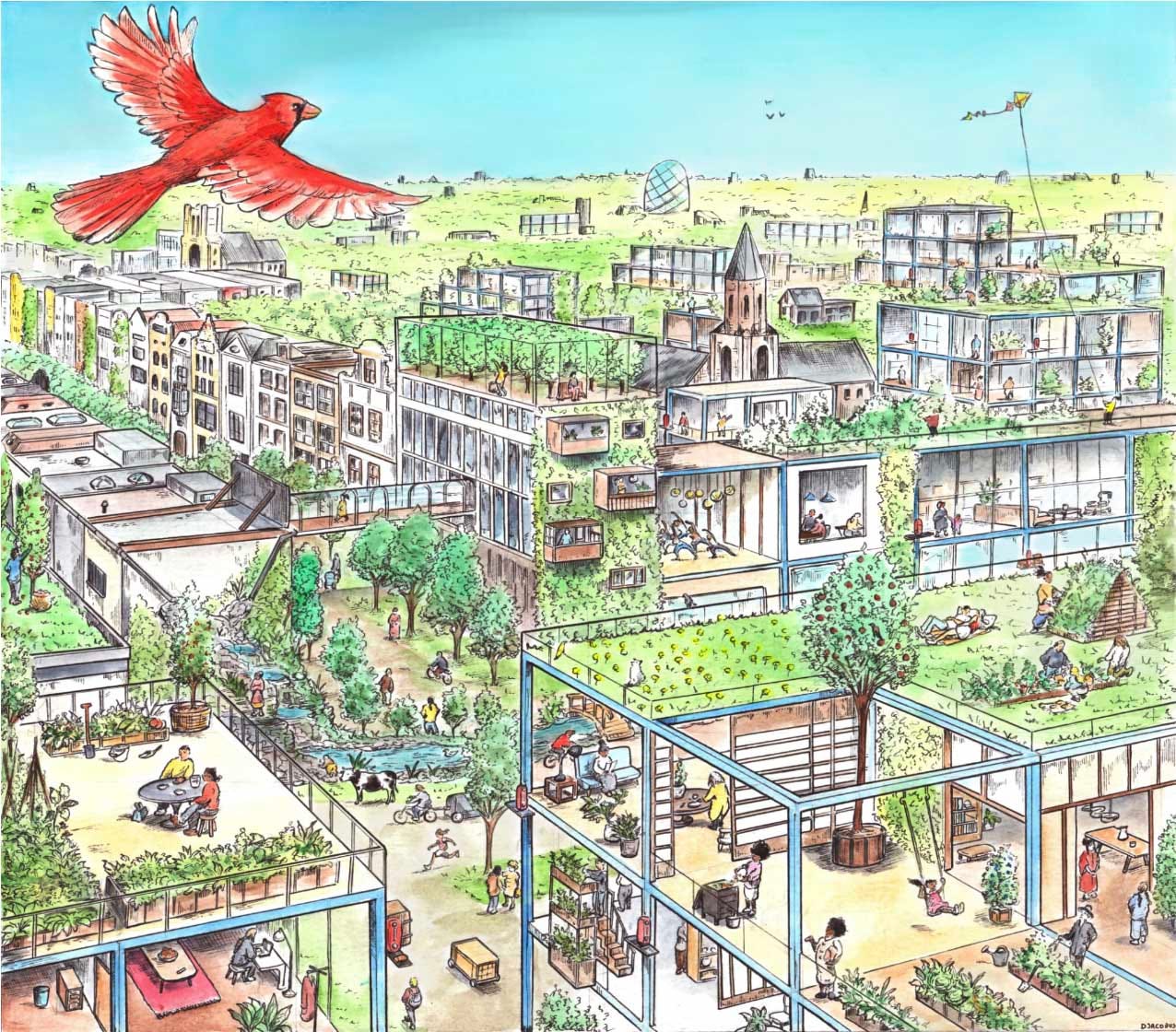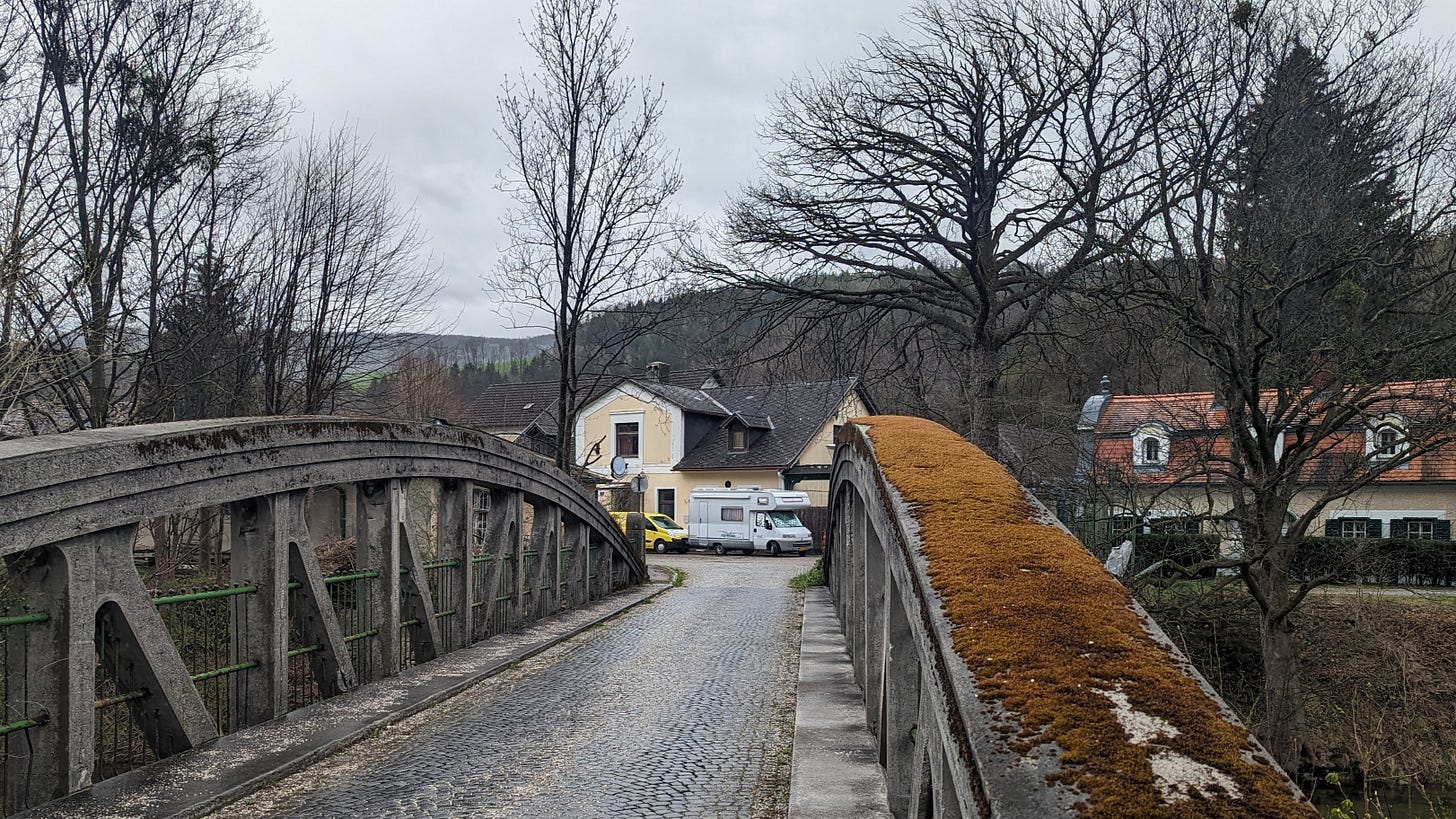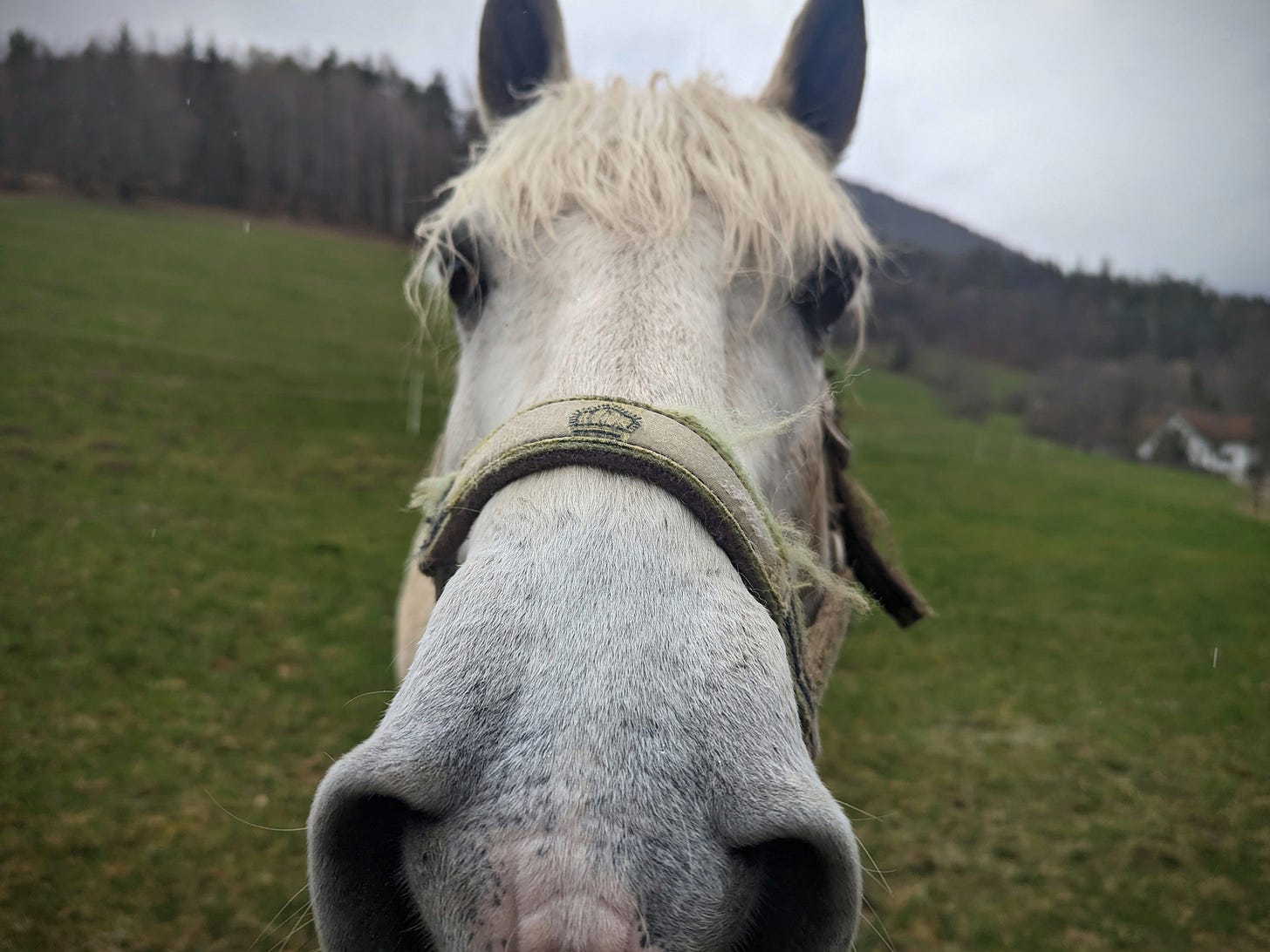Ostrom's Kitchen

We spent last week at the Solarpunk unconference at the Commons Hub in Austria. Solarpunk is a mix of high- and low-tech, politics and art. It's a loosely defined tendency towards a future with more gardens and solar panels and community spaces. The unconference brought together technologists from the good part of crypto, with permaculturalists, socialists, punks, academics and community organisers. Our job was to make friends and sketch out a path to a decent future.
We discussed lofty questions about economics and climate change and governance. Meanwhile I spent the week mostly thinking about the kitchen. With 30+ people staying together in a converted hotel, the kitchen is our first commons to manage. It's subject to all the coordination problems of any commons: it’s in everyone’s best interests to cooperate in keeping the kitchen clean, but as an individual I have an incentive to be a freeloader. Unfortunately if we all do this, the place will be a mess in no time. So the question of how to maintain a decent standard of hygiene in our shared kitchen points directly to the heart of our political project.
We could impose a strict set of procedures and punishments to motivate good behaviour - the authoritarian approach. Or we could pay someone to be the kitchen cleaner - the capitalist approach. But, idealist that I am, I want there to be a third way - the commons approach. Can we coordinate and take care of a common resource without resorting to coercive force or transactional individualism?
Elinor Ostrom won the Nobel Prize for articulating the 8 principles of every successful commonly-managed resource:
clear group boundaries
rules adapted to local circumstances
participatory decision-making
monitoring
graduated sanctions
readily accessible dispute resolution
legal legitimacy
and nested circles of cooperation.
In our temporary Solarpunk community at the Commons Hub we had a few of these principles locked in, but a week is not long enough to bootstrap a fully operational system. It takes time for a locally-adapted system to emerge and stabilise in its unique context. The event hosts could have imposed a set of rules from outside, but that would be the authoritarian approach, not a true commons.
Within the first couple days I could see, this group is probably not going to put the energy in to evolve a perfectly elegant system for keeping the kitchen neat and clean. Some people are going to stack their dishes without rinsing them. Some people will never load the dishwasher. Someone will never find out where the washing up liquid lives and after a few days they'll be too shy to ask. So here's the dynamic that fascinates me: how do I choose to participate in the absence of a well functioning governance system?
Knowing the system is not going to perfectly deliver a high standard of hygiene nor an equitable distribution of work, I have three choices.
The easy choice is to say Fuck It. The system doesn't work. Resign myself to low standards. Contribute the bare minimum. Join the freeloaders. Complain the place is a mess and the system doesn't work. Maybe we could find a scapegoat to blame?
Option 2. I want a clean kitchen, we don't have a system to distribute that work fairly, so I’ll put in more effort to make up for the limits of the system. There's some benefits to this option. The kitchen is clean! I'm a role model for other people to copy if they also want to contribute. Maybe the other community members that are absent in the kitchen are contributing more in the garden, workshop, or arts studio.
But there's a problem. If I take on extra responsibility, I'm unconsciously encouraging others to give up theirs. After all, if there are no negative consequences for leaving a mess, why would you bother cleaning up? So Option 2 is maybe more “grown up” than Option 1, but it's still counterproductive. My extra contribution encourages more freeloaders. Sooner or later I will probably start accumulating resentments. If resentment has no outlet it will gradually turn to contempt. And ask a marriage counsellor: there’s no coming back from contempt.
This brings me to Option 3: political action. In retrospect, I could have gotten organised and agitated for a commons-management system that's appropriately adapted to the local context. Given the crowd at the unconference, I’m sure there would have been appetite for a workshop session called “Applying Ostrom's 8 Principles of Common Managements to our Kitchen.”
We’d need a roughly representative sample of community members to get together and develop a first proposal for our Kitchen Commons Management System. Then we’d return to the community, seeking their consent to participate in an experiment together. We’d need to have a review point marked in the calendar where we can hear feedback about the system and propose improvements. We wouldn’t need to nail all 8 principles immediately. Participatory decision making is essential, because we need members to buy in if we’re asking them to change their behaviour. But the “legal legitimacy” bit is overkill: the ownership of the property is not relevant for a one-week community to be concerned about. (If we were staying for a long time, extending beyond the kitchen commons and taking over the whole hotel, making all kinds of improvements to the land and structures, then sure, that principle will come into effect.)
You know what I'm getting at here, right? This is not a story about the kitchen, it’s about society. How do I participate as a decent citizen in a society that does not yet have adequate systems for managing our shared resources fairly? I can complain impotently while freeloading and taking advantage of any opportunities to benefit myself at others' expense. I can take the more “responsible” path: recycle, go vegan, do whatever local actions I can, taking on more than my fair share of the duty of being a good steward for our shared habitat. This sounds good in theory but if that’s all I’m doing, I’m also enabling more freeloaders, and it would encourage me to adopt a sense of moral superiority and contempt for my fellow citizens. So instead I choose option 3: start at the small scale to build effective participatory systems for commons management, learn the skills and practices of commoning in our everyday lives, then we can start linking these small commons into networks and nested circles of greater cooperation.
In any case, that's the path that makes sense to me. That’s the political project for Microsolidarity: it’s a long game for producing commoners, people so well equipped for commons management that they can’t show up in a messy kitchen without setting off a process of self-governing collective self-improvement. Join me in the dishwashing sink sometime and I’ll tell you all about it.





